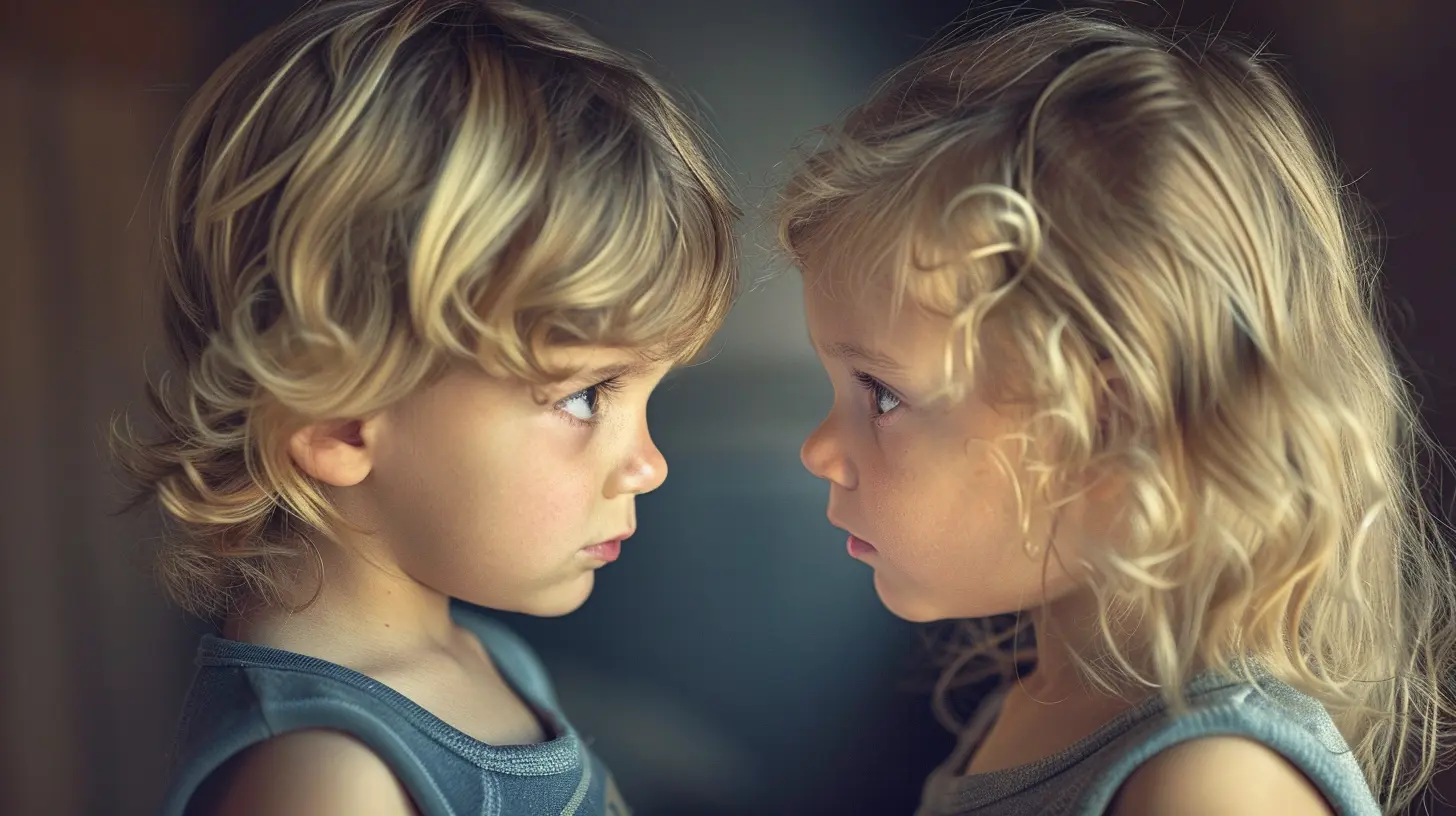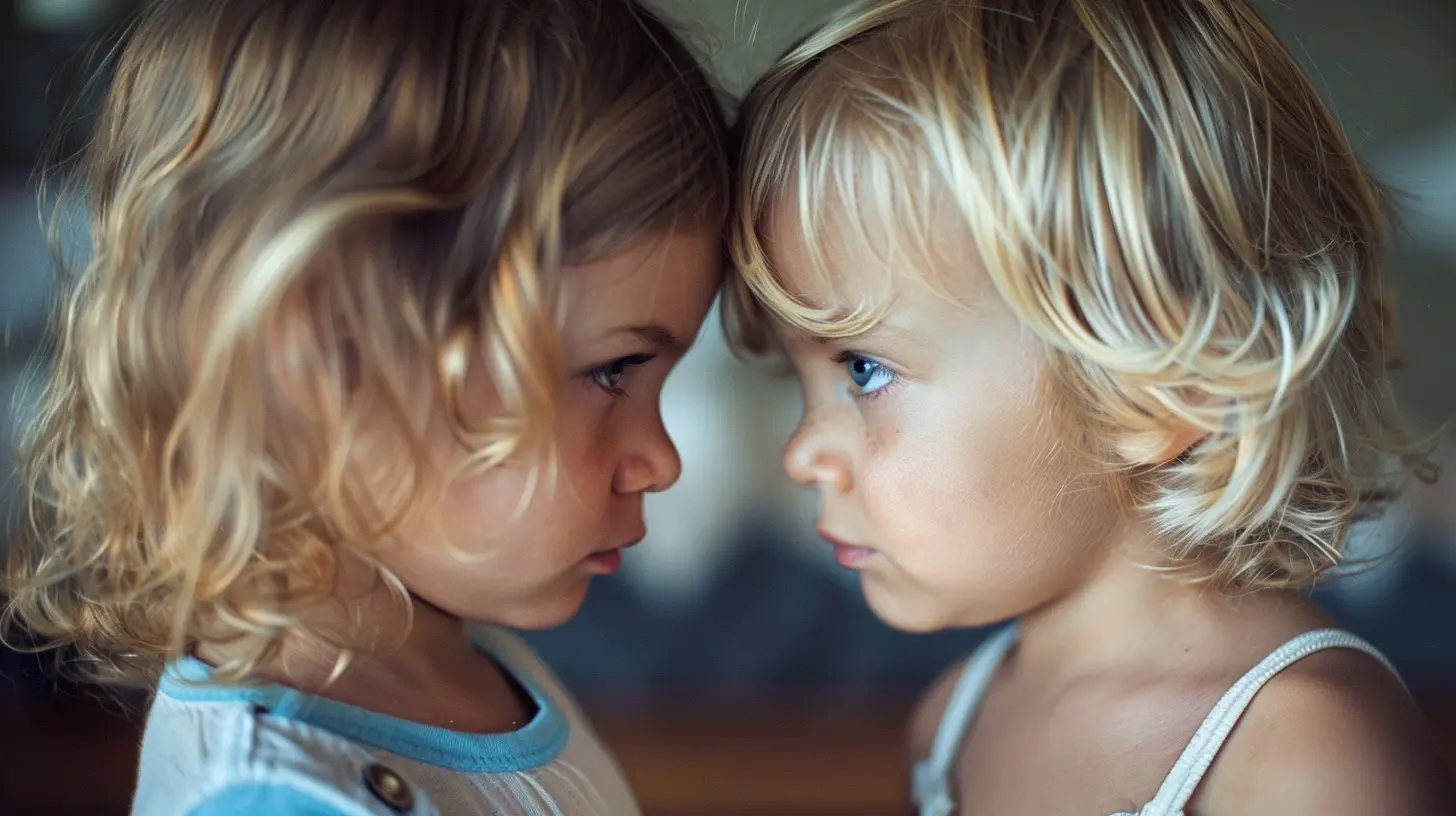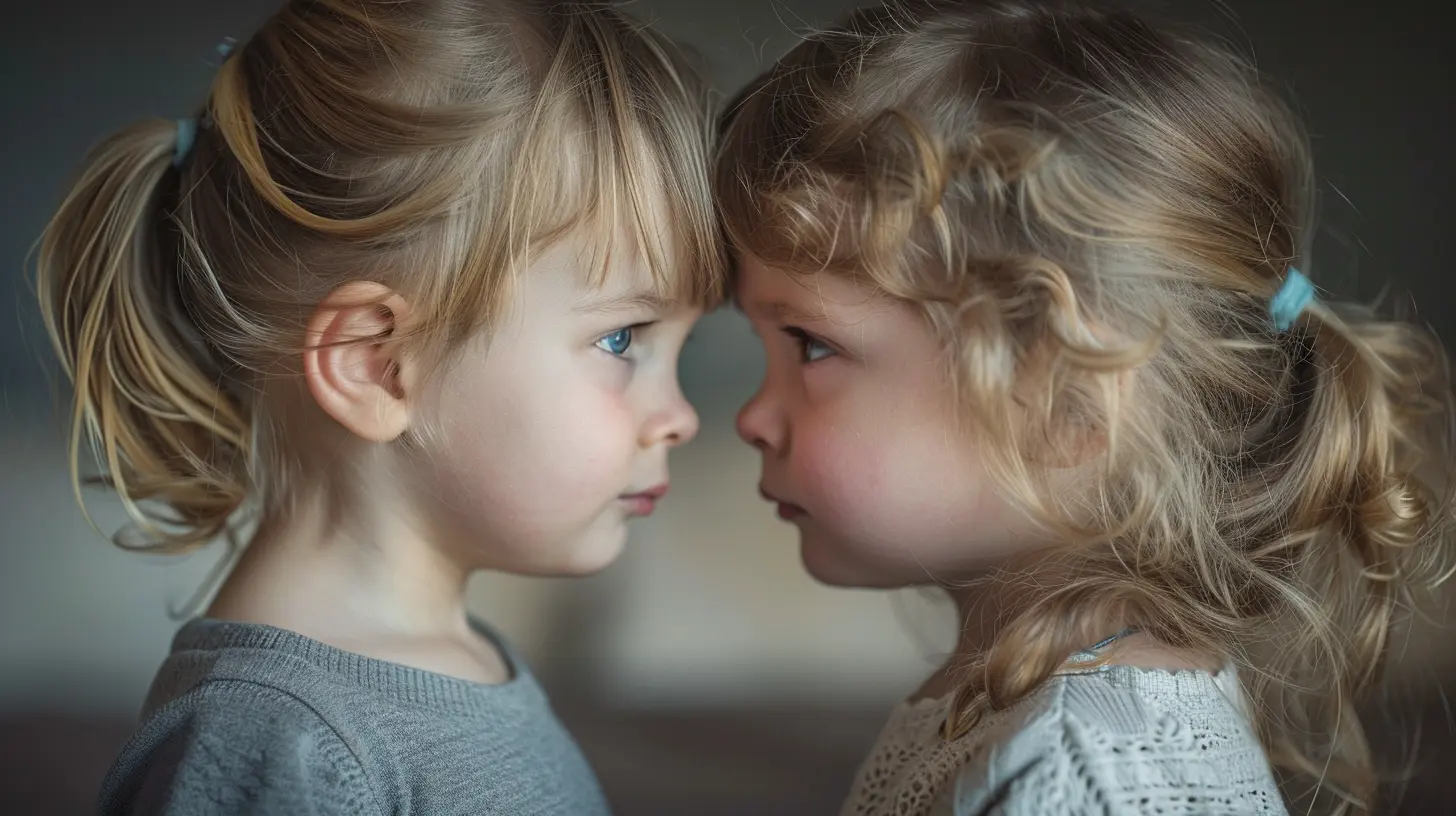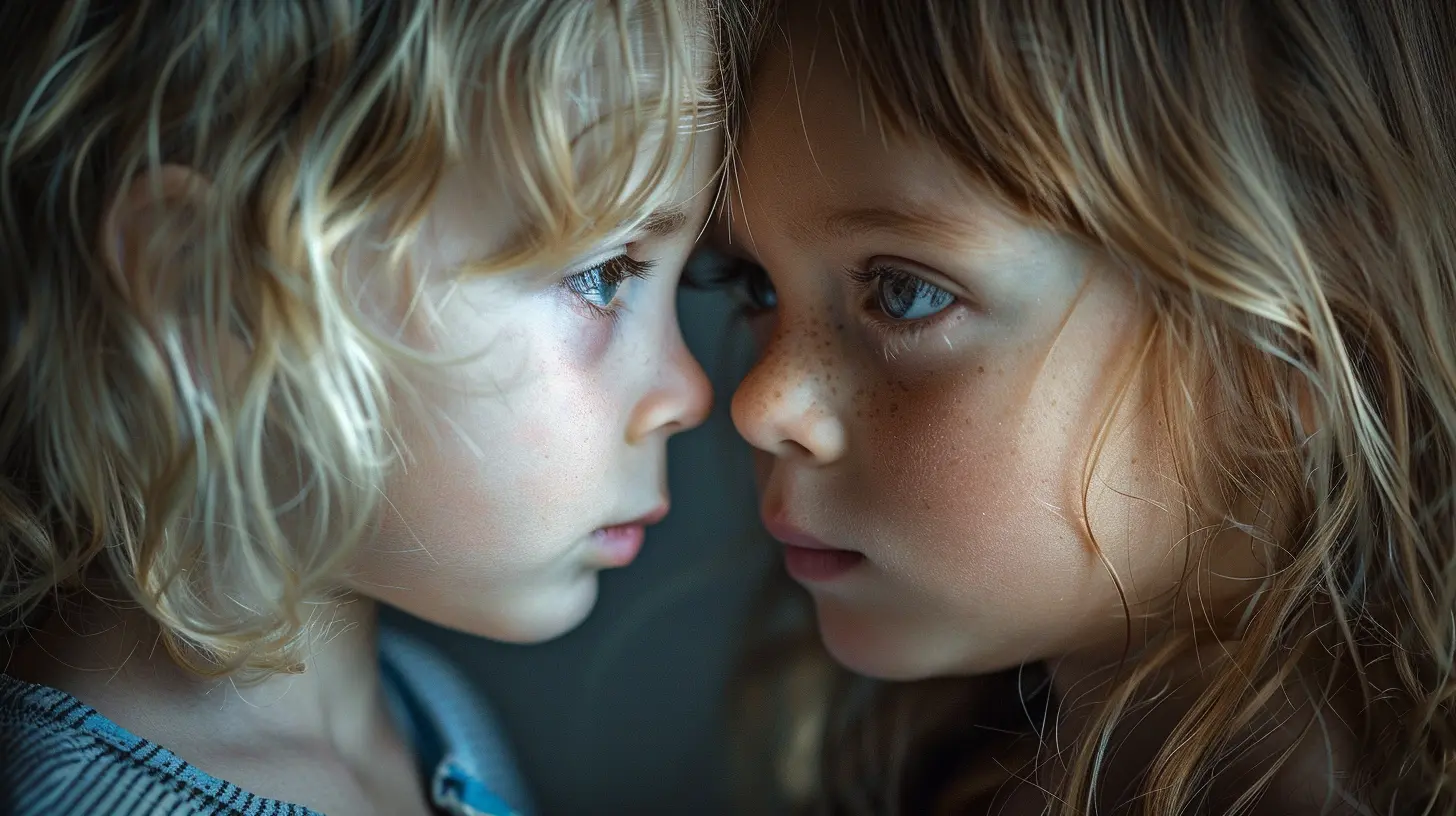Encouraging Honest Expression of Feelings Between Siblings
17 October 2025
Ever watched a sibling squabble spiral into a full-blown face-off over something as tiny as who got the bigger cookie? Yep, you're not alone. Sibling relationships are one of the most complex—and important—bonds children form early in life. They swing between love and annoyance faster than a toddler changes moods. But here's the thing: when siblings learn how to express their feelings honestly and respectfully, they build a foundation of trust, empathy, and emotional intelligence that lasts a lifetime.
So, how do we as parents help our kids navigate these emotional roller coasters? Let’s chat about it. We're diving deep into how to encourage honest expression of feelings between siblings—without turning your living room into a war zone.
Why Honesty Between Siblings Matters
Let’s be real—siblings are each other's first test subjects when it comes to dealing with emotions. The home is their emotional playground. If they learn early on to say, “I feel sad when you ignore me,” instead of pushing or yelling, they've already taken a major leap toward emotional maturity.When siblings feel safe enough to express themselves honestly, they:
- Learn empathy
- Understand boundaries
- Solve conflicts peacefully
- Strengthen their long-term relationship
It’s not just about keeping the peace today; it’s about equipping your kids with tools that will serve them, and their future relationships, for years to come.
The Myth of "Sibling Rivalry" as Just a Phase
We’ve all heard parents say, “Oh, they’re just fighting—it’s normal.” Sure, some rivalry is expected, and not all conflict is bad. But brushing off emotional outbursts or constant bickering as “just a phase” misses an opportunity for growth and connection.Sibling rivalry shouldn’t be the norm—it should be the opportunity.
By guiding kids through their disagreements with honesty and emotional awareness, we're helping them learn conflict resolution, empathy, and self-expression. These aren't just "feel-good" skills; they are life skills.
Creating an Emotionally Safe Space at Home
Alright, before your kids can start opening up to each other, they need to know that expressing feelings isn’t taboo, weird, or embarrassing. That starts with you.Here’s how to build that safe space:
1. Be a Role Model
Kids are emotional copycats. They watch how you handle stress, react during arguments, and speak about your feelings. Do you shut down when you're upset? Or do you say something like, “I’m feeling overwhelmed right now, I need a minute”?You can’t expect your child to put words to their emotions if they never see you do it.
2. Normalize All Emotions
Saying “Don’t cry,” or “There’s nothing to be mad about,” teaches your child that certain emotions are bad. Instead, respond like this: “It’s okay to feel angry, but let’s talk about what’s bothering you.”By normalizing anger, sadness, frustration, and joy equally, your kids learn it’s safe to share any feelings, even the hard ones.
Teaching Kids the Language of Feelings
Ever heard a child say, “He’s being mean!” when really, their feeling is hurt because they feel left out? That’s common—and solvable.1. Name the Feeling
Start early. Teach your kids emotional vocabulary—words like frustrated, jealous, embarrassed, proud, disappointed. Use books, shows, or even family discussions to identify how characters or people might feel.If your daughter says, “He’s annoying!” you might respond, “Are you feeling frustrated because he keeps coming into your room?”
The more your child knows what they’re feeling, the easier it is to express it.
2. Use “I” Statements
Instead of “You never share!” teach your kids to say, “I feel upset when you don’t share with me.” This shifts the focus from blame to expression. Practice these phrases regularly, even during calm moments.Try role-playing: “Let’s pretend your brother took your toy. What could you say instead of yelling?”
Make it a game—it’s way less intimidating that way.
Encouraging Open Communication Between Siblings
Now that your kids are learning to recognize their feelings, let’s give them the tools to communicate those feelings with each other.1. Set Ground Rules for Respectful Talking
Establish simple house rules like:- No name-calling
- No interrupting
- Everyone gets a turn to talk
- Feelings are not wrong
Write them down. Post them on the fridge. Refer back to them when things get heated.
Consistency is key.
2. Be the Coach, Not the Referee
When siblings argue, don’t just step in with a ruling like Judge Judy. Instead, guide them through resolving the issue themselves.You might say:
- “Tell your sister how you're feeling.”
- “Can you repeat what your brother just said so he knows you listened?”
- “What can you both do differently next time?”
Help them practice teamwork—not just competition.
3. Praise Honest Expression
Caught your child saying, “I'm sad because you didn’t want to play with me”—instead of storming off in tears? That’s a BIG win!Celebrate those moments.
Say things like:
- “I’m proud of how you told your sister how you felt.”
- “That was really brave of you to say that.”
Positive reinforcement makes honest communication a habit, not a chore.
The Power of Family Meetings
Think family meetings are boring? Think again! They’re actually goldmines for honest expression.How to Run One:
- Set a regular time (once a week works great)- Everyone gets to share something they’re happy about and something they’re struggling with
- Discuss family decisions (even small ones) together
- Celebrate when conflicts are solved
Not only do these meetings build communication skills, they show kids their voices matter.
And when kids feel heard at home, they’re more likely to listen to each other.
Handling Big Emotions Between Siblings
Sometimes, things get intense. Tears, yelling, slammed doors—the works. Deep breaths, friend. This is when your guidance matters most.1. Stay Calm When Things Get Loud
Kids mirror your energy. If you explode, they will too. Stay calm, invite both kids into a quiet space, and give them time to cool down before talking.Use this script:
- “I see you're both really upset. Let’s take a break and talk when we’re all calm.”
2. Guide the Conversation
Once emotions simmer down, help each sibling say:- What happened
- How it made them feel
- What they wish had happened instead
Encourage responses like:
- “I felt hurt when you made fun of my drawing.”
- “I didn’t mean to hurt you. I was just trying to be funny.”
Growth doesn’t happen in the outburst—it happens in the recovery.
Making Empathy Part of Their Daily Lives
Empathy is the magic ingredient that makes honest expression safe and meaningful.Here are some ways to sprinkle empathy everywhere:
1. Read Books About Feelings
Stories introduce emotions in a non-threatening way. Talk about characters. Ask your kids:- “How do you think she felt?”
- “What would you have done?”
Empathy starts with perspective.
2. Encourage Helping Each Other
Ask one sibling, “Can you comfort your brother when he's sad?” Teach them to notice when someone else is struggling—and that it's okay to help.Tiny gestures like sharing a toy or offering a hug speak volumes.
3. Reflect on the Good Moments
At bedtime, ask:- “What did you love about spending time with your brother today?”
- “What’s one thing your sister did that made you smile?”
That reinforces that their relationship brings joy, not just chaos.
When to Step In—and When to Step Back
Honest expression isn't about constant intervention. Sometimes, kids need space to work things out on their own.So how do you know when to get involved?
Step In When:
- There’s physical aggression
- One child is constantly being dominated
- Emotions are escalating uncontrollably
Step Back When:
- Disagreements are minor
- They’re using respectful voices
- They ask for privacy
And always follow up afterward—even if they solved it alone. Ask how it went, what they learned, and if they feel better.
Final Thoughts: Honest Expression Is a Skill, Not a Trait
No kid is born knowing how to say, “I’m feeling insecure because you got more attention today.” That level of emotional clarity takes time—and lots of practice.So be patient.
You’re not just raising well-behaved kids; you’re raising future partners, teammates, leaders, and parents. Every time you teach them to express honestly and listen with empathy, you’re giving them tools that outlast childhood.
They won’t always get it right. But with you in their corner, cheering them on, they’ll get closer every day.
And hey, maybe one day, you’ll overhear your kids genuinely working through a conflict—with kindness, clarity, and care—and you’ll smile, knowing they’ve got this.
all images in this post were generated using AI tools
Category:
Sibling RivalryAuthor:

Austin Wilcox
Discussion
rate this article
1 comments
Drift Huffman
Sibling chats can be like a reality show—full of drama, laughter, and unexpected plot twists! Encouraging honest feelings turns conflicts into bonding moments. Let the sibling shenanigans begin!
October 23, 2025 at 2:33 PM

Austin Wilcox
Absolutely! Honest expression fosters deeper connections and transforms sibling relationships into a supportive and fun journey. Let the adventures unfold!


